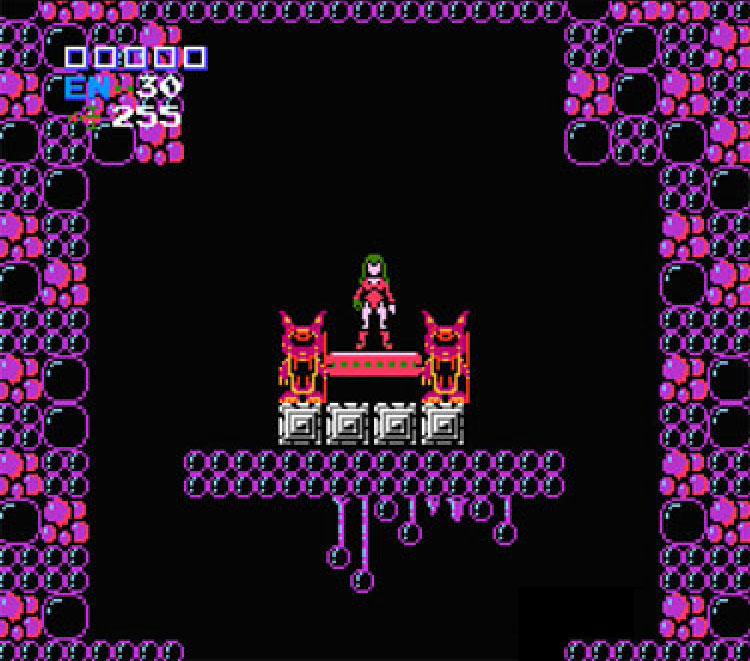
Metroid — when you have something this good, it’s worth saving.
Of course, Metroid was such a complex and deep game, the idea of starting over from scratch each time you turned on the NES was simply out of the question, even though that’s what you had to do with other games like Super Mario Bros and Hogan’s Alley. Those games, however, did not really need to be saved. Sure, it would have been nice to be able to save our high scores, but Nintendo Power Magazine had already told us how to get around that by taking pictures in a dark room without a flash, thereby making us all NES Achievers. Metroid, of course, didn’t even have a scoring system but did have a gigantic world and numerous upgrades and weapons to find.
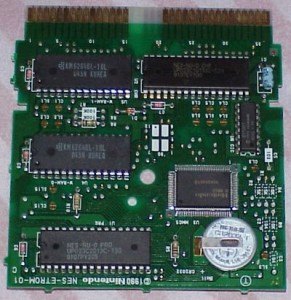
Cartridges — excuse me — Game Paks did not have the ability to save data. In practice, they were very similar to an arcade game board. They remembered things as long as the power was on, but went back to zero when the system, or cabinet, was switched off or lost power. You couldn’t write data to a NES Game Pak, it was essentially an interchangeable mother board.
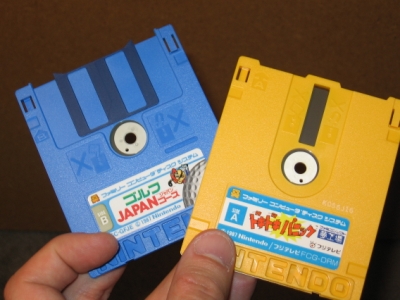
This wasn’t a problem in Japan, as Metroid was released on the Famicom Disk System. The Disk System was an add-on that actually allowed for far more complicated games than the first and second generation of Famicom cartridges (you could call them that in Japan), and it had a couple of added bonuses: One, that the disks were rewritable (you could erase a game and get a new one on the same disk at a store), and two, they allowed games to have a save function. This was great for Metroid, as there were so many different things to get that it would be quite a pain to start over from scratch each time, and would plainly be unrealistic to leave the system running until the game was complete.
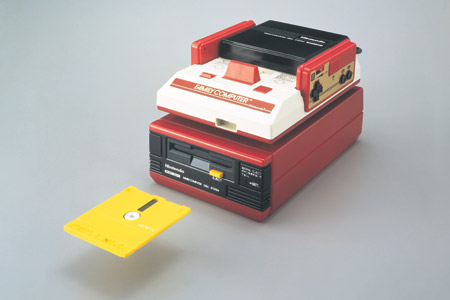
The Disk System version of Metroid (the only version in Japan) had three save slots, much like future Metroid series releases, and comparable to The Legend of Zelda. Easy. But there wasn’t a Disk System in America or Europe, and there still wasn’t a way to save to… Game Paks. What was Nintendo to do?
Why, invent the Password system, of course! Entering a multi-digit password would tell the game the information it needed to remember what stage of the game you were at when you ended it. Metroid in particular had elaborate passwords, as there were many things to remember, each unique pickup had its own digit, as did energy tanks and missile upgrades, plus what doors had been unlocked, which bosses beaten, and which area Samus was in when she quit.
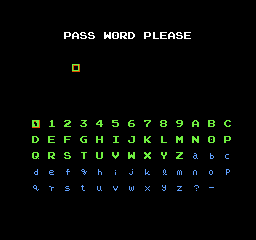
Wait… Samus is a girl? Better read this.
Despite coming out a month or two after The Legend of Zelda in America, Metroid was equipped with the password save instead of a battery backup. It took a while to write down the passwords from a game, and you could easily get something wrong, like whether something was a “1” or an “I” or a “!”, or lower case “p,” “g,” and “q.” But despite the limitations, it also gave us cool secret codes like “JUSTIN BAILEY” and “NARPAS SWORD” that gave us access to cool hidden powers and the like. Later games would use the password system as well, mostly as a cost-saving measure to avoid having to include a battery in the Game Pak, but it worked better on titles where merely the progress needed to be saved, like Mega Man, Castlevania, and The Lost Vikings, where there weren’t a bunch of upgrades or character stat development.
Along with contemporary Kid Icarus, Metroid helped pioneer the idea of the password save for cartridge-based games. Though Nintendo largely avoided the use of passwords after these two games, they definitely led the way for many other titles from many other developers in the future — strangely, there are even some DS games that use a password save!




 ShareThis
ShareThis






